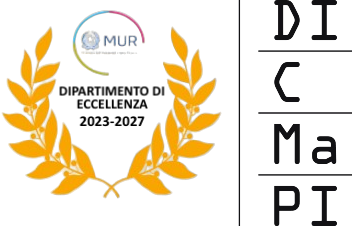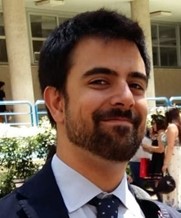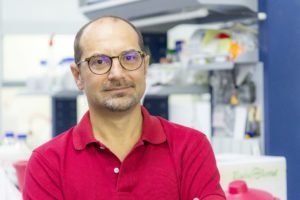Pietro Renato Avallone
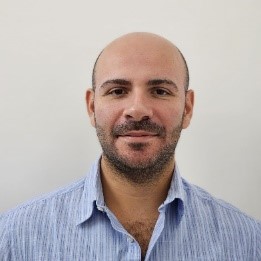
Durante il dottorato, attraverso l’analisi delle proprietà di gelazione degli idrogeli, è stata individuata una stretta relazione tra la cinetica della gelazione e le proprietà meccaniche e morfologiche dei gel di gelatina.
Da Febbraio del 2022 ha lavorato presso l’Università del Sannio per un anno come postdoc ad un progetto sul comportamento reologico di sistemi complessi.
Come visiting researcher, ha recentemente trascorso alcuni mesi alla Delft University of Technology (TU Delft) nei Paesi Bassi con un progetto sulla dinamica delle bolle in media viscoelastici.
Durante la sua attività di ricerca, P.R. Avallone ha pubblicato nove articoli su riviste internazionali, focalizzando l’attenzione sulla reologia dei fluidi complessi, in particolare su soluzioni viscoelastiche, gel ed emulsioni.
I suoi interessi di ricerca includono il comportamento reologico di cinetiche di gelificazione, la microstruttura, la cristallizzazione di materiali complessi, le transizioni di fase assistite da ultrasuoni e la dinamica di bolle in mezzi viscoelastici.
Attualmente è Ricercatore a Tempo Determinato (RTD-A) presso il Dipartimento di Ingegneria Chimica, Materiali e Produzione Industriale (DICMaPI), UNINA.
È titolare del corso di Transport Phenomena in Lining Systems per gli studenti di laurea magistrale in Industrial Bioengineering.
Paolo Bifulco
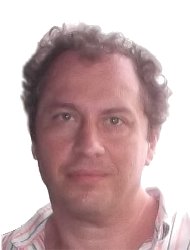
Paolo Bifulco è professore ordinario di Ingegneria Biomedica presso il Dipartimento di Ingegneria Elettrica e delle Tecnologie dell’Informazione. Ha conseguito la laurea in Ingegneria Elettronica presso l’Università Federico II di Napoli e il dottorato di ricerca in Bioingegneria. È stato Visitor Researcher presso l’Università di Southampton (UK). È stato associate editor e revisore per diverse riviste internazionali. Ha partecipato a numerosi progetti di ricerca nazionali e internazionali. Ha svolto attività didattica nel campo della bioingegneria tenendo, tra gli altri, corsi di Strumentazione biomedica e Ingegneria clinica. La sua attività scientifica si è sviluppata principalmente nel campo della strumentazione biomedica, dell’elaborazione e dell’analisi di segnali e immagini biomediche, della telemedicina e della telematica sanitaria.
David Cacchiarelli
Davide Cacchiarelli grew up in Rome where he carried out his undergraduate studies in Biotechnology and Biology. He obtained a Master Degree and a Doctorate Degree in Genetics and Molecular Biology from University of Rome “La Sapienza”, working on mechanisms of RNA regulation. In 2011 he moved to The Broad Institute of MIT and Harvard and The Department of Stem Cell and Regenerative Biology at Harvard University to focus his research on the rules governing cell fate transitions and reprogramming using genomic approaches.
He returned to Italy in 2017 thanks to the Armenise Harvard Foundation Career Development Award and now he leads a young research group focused on understanding the dynamics of cell fate decisions at TIGEM, the Telethon Institute of Genetics and Medicine in Naples.
Davide Cacchiarelli’s work aims to identify the mechanisms controlling cell fate decisions during cellular differentiation, conversion and reprogramming, and how such processed are affected by genetic mutations of key regulatory proteins including transcription factors. To achieve this goal he proposes to integrate descriptive, functional and single cell genomics to dissect how genetic elements and their variants impinge on the temporal and spatial control of gene expression.
Davide Cacchiarelli is leading the Laboratory of Integrative Genomics at TIGEM, bringing together an interdisciplinary approach engaging stem cell biology, cellular engineering, genomic approaches and mathematical modeling.
Marcella Cesana
…prossimamente…
Michele Costanzo
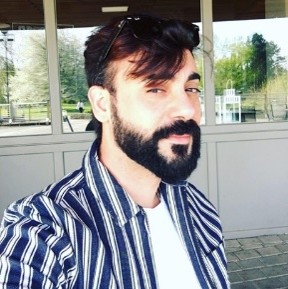
Dr. Michele Costanzo is Researcher RTDA in Biochemistry (BIO/10) in the Department of Molecular Medicine and Medical Biotechnology at the University of Naples ‘‘Federico II’’. He graduated in Genetic Sciences and Technologies in 2015 and obtained his PhD in Molecular Medicine and Medical Biotechnology in 2020 at the University of Naples “Federico II”. He has been visiting researcher at the Proteomics facility of Necker Hospital/INSERM U24 in Paris (2017), and at the Leibniz-Institute of Analytical Sciences (ISAS) in Dortmund (2019).
His scientific activity is mainly devoted to the development of new methodologies in the field of clinical proteomics, metabolomics, and lipidomics. He has practical experience in the application of mass spectrometry-based technologies and the statistical treatment of big data, as demonstrated by his publishing track record. Currently, his research has a direct applicative focus on human diseases, through the implementation of multi-omics integrative approaches and bioinformatics procedures.
David Dannhauser
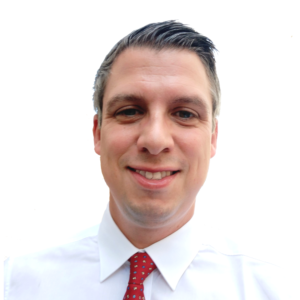
David Dannhauser è attualmente ricercatore presso il “Centro Interdipartimentale di Ricerca sui Biomateriali” (CRIB) dell’Università di Napoli Federico II, Italia. Nel 2013 ha conseguito il dottorato di ricerca in “Produzione ed Ingegneria dei Materiali” presso la stessa università. I suoi principali ambiti di ricerca includono la diffusione della luce a piccolo angolo, l’allineamento e la manipolazione viscoelastica di particelle e cellule, lo sviluppo di dispositivi lab-on-a-chip per il settore diagnostico, nonché la spettroscopia delle cellule singole in generale.
Uno dei suoi risultati più significativi è stato lo sviluppo di un dispositivo economico basato sulla microfluidica per l’allineamento tridimensionale di particelle e cellule, facilmente accoppiabile a una vasta gamma di sistemi di indagine ottica. Basandosi sull’allineamento cellulare indotto dalla viscoelasticità, ha sviluppato un sistema di diffusione statica della luce basato su telecamera, che apre la possibilità di ottenere firme ottiche individuali di cellule viventi o di biomarcatori in condizioni di flusso continuo. Le firme di diffusione forniscono informazioni cruciali sulle caratteristiche morfologiche delle particelle o cellule analizzate, consentendo, ad esempio, di distinguere diversi tipi di cellule o biomarcatori, nonché di differenziare cellule fisiologiche da quelle patologiche. Questo metodo di caratterizzazione delle cellule singole, semplice da utilizzare, può essere considerato una prospettiva promettente per una diagnostica del sangue umano rapida ed economica.
Fanny Ficuciello
Fanny Ficuciello received the Laurea degree magna cum laude in Mechanical Engineering and the Ph.D. degree in Computer and Automation Engineering both at University of Naples Federico II in 2007 and 2010 respectively.
From September 2009 to March 2010 she was a visiting scholar in the Control Engineering Group at University of Twente, The Netherlands.
Currently, she is Assistant Professor of Industrial Bioengineering at the University of Naples Federico II. Her research activities are focused on biomechanical design and bio-aware control strategies for anthropomorphic artificial hands, grasping and manipulation with hand/arm and dual arm robotic systems, human-robot interaction control, variable impedance control and redundancy resolution strategies. Recently, she is involved on surgical robotics research projects, as a member of the ICAROS center (Interdepartmental Center for Advances in Robotic Surgery) of University of Naples Federico II.
She has published more than 60 journal and conference papers and book chapters. She is Editor of the volume “Human Friendly Robotics, 10th International Workshop” within the Springer Proceedings in Advanced Robotics. She is the recipient of a National Grant within the “Programma STAR Linea 1” under which she is the PI of the MUSHA project. She is responsible of the research objective “MRI-TRUS fusion algorithms and control strategies for robot-assisted biopsy” for the national project “Bioptic Advanced Robotic Technologies in OncoLOgy – B.A.R.T.O.LO”. Since 2008 she is a Member of the IEEE Robotics and Automation Society, and a Senior Member since 2017.
Since 2018 she is in the Technology Committee of the European Association of Endoscopic Surgery (EAES). She is involved in the organization of international conferences and workshops. Currently she serves as Associate Editor of Journal of Intelligent Service Robotics (JIST) and she is on the editorial board of prestigious conferences in the field of robotics.
Massimilano Fraldi
Massimiliano Fraldi is associate professor of Mechanics of Solids and Structures, Tissue Mechanics and Micro-mechanics of Heterogeneous Materials at the Polytechnic School of the University of Napoli Federico II, Italy, where he is member of the Doctoral College of Structural and Geotechnical Engineering and Seismic Risk at the Department of Structures for Engineering and Architecture (DIST). He is also associate to the Interdisciplinary Research Center on Biomaterials (CRIB), a leading European Institution in the field of Biomaterials, to the Center for Structural Composites for Innovative Construction (SCIC) and is affiliated member of the Institute of applied Sciences and Intelligent Systems (ISASI) of the National Research Council of Italy. He is also fellow of the Italian Association of Theoretical and Applied Mechanics (AIMETA), the National Interuniversity Consortium for Material Science and Technology (INSTM) and member of the Society for Natural Philosophy (SNP, founded by Clifford Truesdell).
Costantino Menna
Costantino Menna is Assistant Professor at the University of Naples Federico II, where he graduated in Materials Engineering in 2009 and received his Ph.D. in Materials Engineering and Structures in 2013, working on damage modeling of advanced composite materials.
He is involved in several multidisciplinary research activities mainly focused on advanced materials for civil and industrial applications, including: finite element modeling of advanced composite materials, experimental and theoretical assessment of innovative materials used for structural retrofit of existing structures, and additive manufacturing in the construction industry. During his academic career, he has been visiting research scholar in several foreign institutions: École Polytechnique de Montréal (Canada), Department of Engineering Science and Mechanics of Penn State University (USA), Laboratoire de Mécanique des Solides of Ecole Polytechnique (Parigi), University of Greenwich (UK).
He is a member of several task groups of fib (Fédération Internationale du Béton) and member of RILEM Technical Committee: “Digital fabrication with cement-based materials”. He is a co-founder of the Spinoff FED, Future Environmental Design, providing services on the integration of Building Integration Modeling (BIM) and Sustainability in the construction sector.
He is author of more than 30 scientific papers published in international peer-reviewed journals and 3 national and international patents.
Paolo A. Netti
Paolo A. Netti received his PhD in Chemical Engineering in 1994 from the University of Naples Federico II. During his doctoral studies he has worked at the IRC in Biomedical Materials at the University of London and later for his post-doctoral stage joined Harvard University for more than 4 years. He is full professor of Biomaterials and Tissue Engineering at the University of Naples Federico II and he is the coordinator of the Center for Advanced Biomaterials for Health Care IIT@CRIB.
His research interests mainly focus on elucidating the complex interplays between materials properties and biological entities such as biomolecules, cells and tissues. His activities span from the basic understanding of the mechanisms governing cell’s recognition and response to material stimuli, to the technological development of novel class of biomaterials and devices able to control cell fate and functions. He participated to several European Scientific Commission panels for defining a viable European roadmap for the development of novel biomaterials platforms, he is a panel member of ERC advanced grant evaluation committee and has also served as scientific tutor of several research platforms from the Italian Minister of Research and University.
Rossana Pasquino
In 2005, she started a Ph.D. at Unina on suspensions of hard spheres in viscoelastic solutions. Her Ph.D. program was part of a joint project between Unina and KU Leuven, in Belgium, where she performed half of her studies. She obtained the Ph.D. degree in 2008. After her Ph.D., she worked for one year as Postdoctoral researcher between Belgium and Italy, dealing with flow-induced microstructure in suspensions. After that, she won a Marie Curie fellowship (within the framework of the initial training network “Dynacop”) and she moved to Heraklion, in Crete, where she spent two years at FORTH-IESL, studying the dynamics of complex polymers.
Since 2012, she has been working as a permanent researcher at the Department of Chemical, Materials and Industrial Production Engineering (DICMaPI, Unina). In 2016, she became Associate Professor at the same department. She received the Italian habilitation to Ordinary Professor in 2018.
She teaches Rheology and Transport Phenomena and she is leading a Rheology group involving postdocs, PhDs and Master students. R. Pasquino’s work on rheology of complex fluids is globally acknowledged in the rheology community, especially concerning the use of rheology as a tool to detect morphology and microstructural properties of soft matter. Her studies focus on different aspects of the rheology of viscoelastic solutions, colloids and polymers.
In 2015, she was visiting professor at ETH Zurich, in Switzerland, where she worked on microfluidics of micellar solutions. In 2018, she visited Queen’s University in Kingston, Canada, to investigate polymer degradation through rheological tools.
She is the author of approximately 50 scientific works on peer-reviewed journals (h-index 16, number of citations>700) and she is involved in various national and international projects.
Since 2019, she is an Associate Editor of Physics of Fluids and she is part of the Editorial Board of Soft Matter.
She was in the Organization Committee of the Annual European Rheology Conference (AERC) in 2018, and chairman/invited keynote speaker in various international conferences.
She is the recipient of the Distinguished Young Rheologist Award 2018, given by TA Instruments.
Valentina Preziosi
Svolge attivitá didattica e di ricerca nell’ambito dello studio microstrutturale e dei fenomeni di trasporto di fluidi complessi, sia di interesse biologico che industriale, in sistemi microfluidici. L’integrazione di tali sistemi microfluidici con transistor organici per il sensing e monitoraggio di tali fluidi è oggetto principale di studio e pubblicato nella gran parte dei suoi articoli scientifici e nei progetti vinti.
È autore di 32 articoli su riviste internazionali peer-reviewed (~30% corresponding, ~30% primo nome, >80% Q1), circa 20 atti di convegni, 1 capitolo di libro e circa 40 partecipazioni a convegni. Il numero di citazioni è ~800, con H-index 13 (fonte: Scopus).
Lei è/è stata Responsabile nazionale (Principal Investigator) nei seguenti progetti di ricerca:
-ISSNAF (Italian Scientists and Scholars of North America Foundation) – EasyDial inc – “Studio di fattibilità per l’utilizzo della tecnologia micro-fluidica per le operazioni di filtraggio ematico”.
–STAR L1 2018 come Principal Investigator – “Biosensing through Immuno-microfluidics”. –FISR 2020 come Principal Investigator – “Rilevamento ed amplificazione della presenza di immunoglobuline in sangue affetto da COVID-19 con l’uso di biosensori”.
– PRIN 2022 come Principal Investigator – “A lab-on-a-chip integrated with electrochemical transistors for cardiac biomarkers evaluation in human blood”.
Margherita Ruoppolo
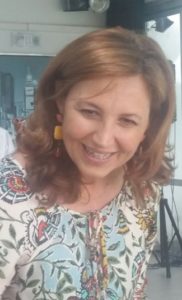
She began her university career in 1996 as Researcher (SSD BIO-10 “Biochemistry”) at the University of Salerno. In 2001 she became Associate Professor (SSD BIO-10 “Biochemistry”) at the Faculty of Medicine of the University of Naples Federico II. Since 2007 she is Full Professor (SSD BIO-10 “Biochemistry”) at the Faculty of Medicine of the University of Naples Federico II. Since 2003 she has been responsible for the INTERDEPARTMENTAL PROGRAM: Development of innovative spectroscopic technologies for the screening and diagnosis of diseases of the Laboratory Medicine DAI, University Policlinico, University of Naples “Federico II”. Since 2018 she has been responsible for the laboratory of newborn screening at CEINGE.
She teaches Biochemistry courses at the School of Medicine of the University of Naples “Federico II” and she is in charge of the teaching of Proteomics (CdL Biotechnology of Health – University of Naples Federico II).
From November 2011 to October 2016 she was President of the Council for the Degree Course in Audioprosthetic Techniques
The scientific activity of Margherita Ruoppolo has focused on the themes listed below:
-Characterization of post-translational modifications with particular regard to the dynamic characterization of disulphide bridges and to oxidative folding processes.
-Differential and functional proteomics methodologies in molecular medicine
-Metabolomics methodologies in the study of inborn errors of metabolism
– Definition of altered intracellular pathways in hereditary diseases of the intermediate metabolism.
Maurizio Ventre
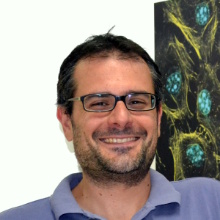
Maurizio Ventre received the MSc in Materials Engineering in 2003 from the University of Naples Federico II and the PhD in Chemical, Materials and Production Engineering in 2006 from the same institution. During his PhD studies, he was a visiting scientist at the University of Northampton, UK, to study the composition-structure-function relationship of biological tissues. From 2007 to 2010 he was a post-doc researcher at the Interdisciplinary Research Centre on Biomaterials of the University of Naples and then he moved to the Italian Institute of Technology as a Senior Post Doc until 2011. Currently, Maurizio Ventre is an associate professor of Industrial Bioengineering. His research interests include cell-material interaction, mechanobiology and morphogenesis. Maurizio Ventre is author of over 60 papers totalling more than 2000 citations. In the period 2016-2023 he was the Quality Assurance Responsible for the Degree Course in Industrial Bioengineering. In February 2023 he was elected Course Coordinator. Within the MSc in Industrial Bioengineering he teaches Artificial Organs and Prostheses.

